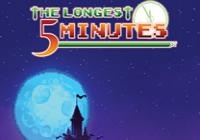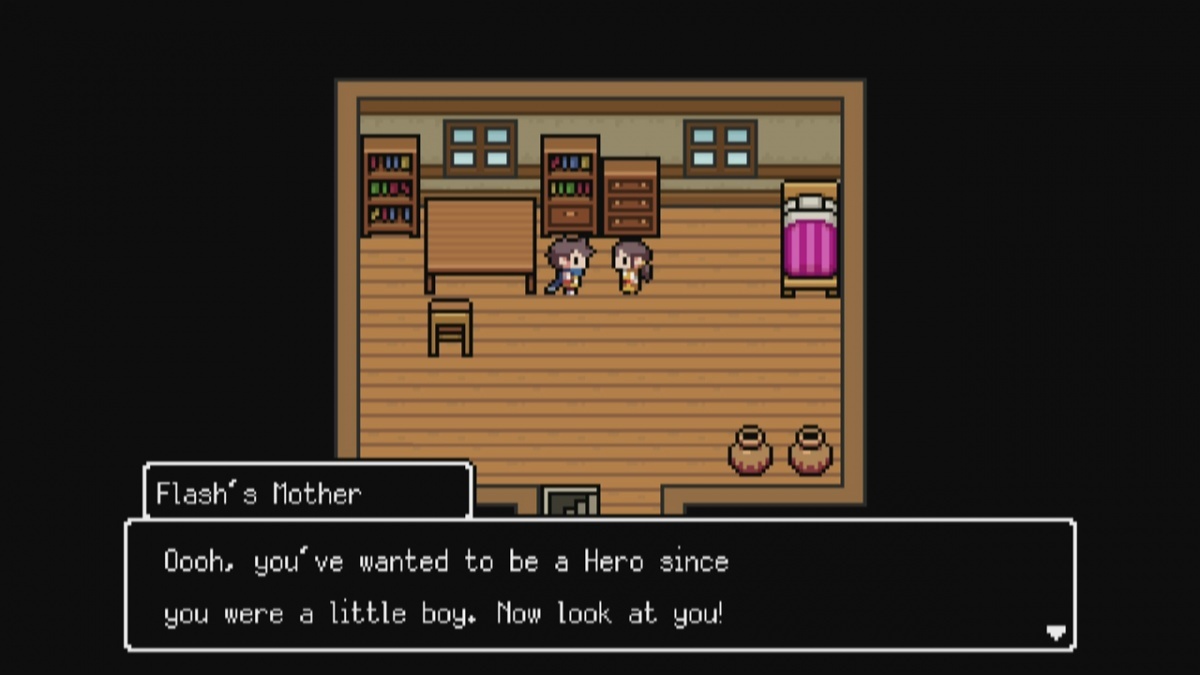The Longest Five Minutes (Nintendo Switch) Review
By Drew Hurley  26.02.2018
26.02.2018

Most quests are meant to end at the final boss but for The Longest Five Minutes that's the beginning of the story. Opening on a showdown between some classic, old school sprites facing off against a gargantuan Demon King, the hero of the group, Flash Back - see what they did there?! - is hit with a sudden bout of amnesia! The rest of the game plays out with flashbacks to different parts of the adventure to help Flash regain his memory, abilities, and bonds in order to defeat the dark lord and once again become himself. NIS America previously ported this smartphone game over to the West on PC and Vita, and now it's finding a home on Switch, too.
A good premise can be enough to get players interested and this one certainly sounds promising enough. The titular The Longest Five Minutes is in reference to the entirety of the game that plays out in the present, during the final showdown with the great Demon King. While this showdown plays out, a counter ticks down in the corner, playing out those final five minutes. During the combat, certain actions or lines of dialogue from the party or from the Demon King himself can trigger a memory for Flash. These memories fling Flash back to a previous time. From the first steps in leaving his village to become a hero with his friends, to important moments shared with them along the way, to key events that explain the plot and, of course, to moments where the characters develop their strengths and powers.

While this seems an interesting premise at first, the issue is that it detracts from the nature of an RPG; it's hard to really get invested in the game or the story. Splitting each memory up into bite-sized chunks inevitably makes those chunks feel shallow. Why bother speaking with the NPCs or exploring every nook and cranny when they lack anything worth seeing or exploring. This issue is further emphasised by basing every memory around a series of simple objectives that make each memory more like a little stage than an RPG experience. Worse yet, these objectives are so simplistic and easy to complete that it detracts from the immersion of the experience. Giving all of the superfluous NPC pointless little blurbs of dialogue and putting huge Metal Gear-style exclamation marks over the objectives… Sadly, "shallow" is the perfect word for the whole experience.
The combat system is a classic turn-based system, with different members of the party each with their own special skills and strengths, but they are mostly unneeded. The majority of the game can just be sped through by picking the "Auto Battle" option with no need for any real effort, thus resulting in a boring experience. Towards the tail end of the experience, it improves somewhat, as new enemies appear that suddenly require a little thought. It's a shame this change comes so late, as it could have delivered a wholly different experience should the combat have been challenging from the start. The graphics are equally simplistic and lacking any real unique design style or flair. Many of the enemies' designs seem quite comedic or satirical but, thanks to the amateur art designs, they just come across as rather poor.

Cubed3 Rating
Average
The Longest Five Minutes is an interesting take on a nostalgia trip, but by splitting the game into the individual memories it does a huge disservice to its RPG nature. If only these memories had been fleshed out, giving the main characters a little depth, some side quests, some hidden quests… anything to make it feel like the games it is monkeying, instead of being such simple little, objective-based stages. There are moments that shine, but they are marred by the numerous issues and make this Nintendo Switch release somewhat of a disappointment.

![]() 5/10
5/10
![]() 0
(0 Votes)
0
(0 Votes)
 Out now
Out now  Out now
Out now  Out now
Out now  Out now
Out now Comments
Comments are currently disabled

 Sign In
Sign In Game Details
Game Details Subscribe to this topic
Subscribe to this topic Features
Features





 Top
Top

